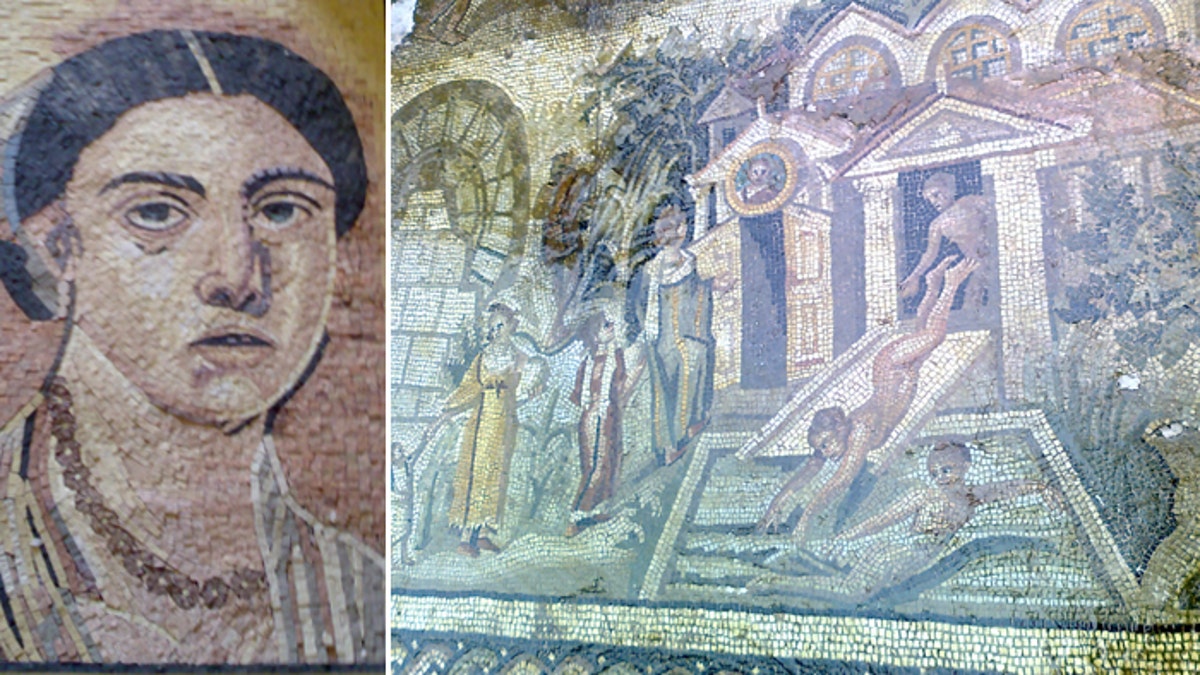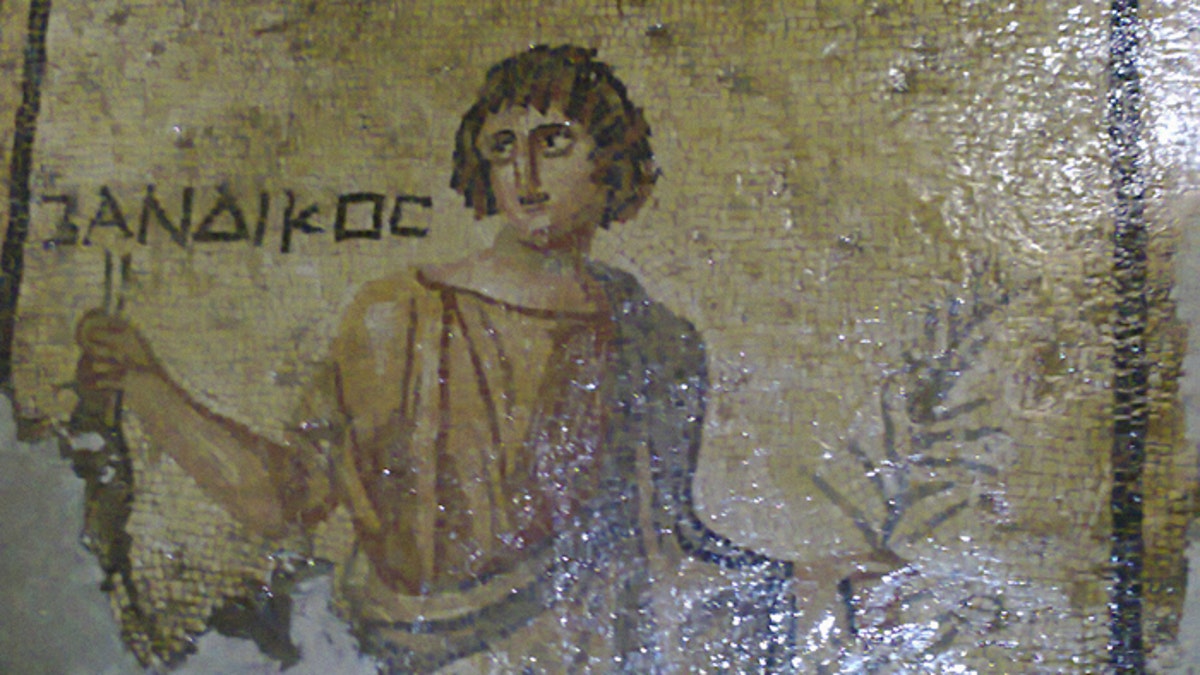
These mosaics were stolen in Syria in 2011, according to INTERPOL.
The secretary general of Interpol pledged Monday to ramp up the fight against the smuggling of ancient relics by ISIS militants in Iraq and Syria.
At a meeting of the United Nations Security Council on Monday, Interpol Secretary General Jürgen Stockcalled for the protection of cultural heritage from the theft and destruction by the terrorist group, which has released videos of its members using explosives, bulldozers and sledge hammers to demolish relics and buildings as old as civilization.
"The current situation in Syria and Iraq presents a significant challenge as sites vulnerable to destruction are often out of effective government control and illicit excavations dominate the picture."
"In the eyes of criminals, cultural heritage often stands as an easy target," Stock said. "The current situation in Syria and Iraq presents a significant challenge as sites vulnerable to destruction are often out of effective government control and illicit excavations dominate the picture."
The meeting, convened by the Permanent Missions of Jordan and France to the United Nations, co-presidents of the Security Council, was meant to identify innovative and practical ways to preserve cultural heritage following the recent adoption of UNSC Resolution 2199 -- a resolution unanimously adopted by the Security Council in February to prevent terrorist groups from benefiting from trade in oil, antiquities and hostages and from receiving donations.
ISIS, which controls large swaths of Iraq and Syria, released a seven-minute video last month allegedly showing the destruction of the ancient Assyrian city of Nimrud. The city was listed as a UNESCO World Heritage Site and was one of Iraq's biggest archaeological treasures. A second video released earlier this month shows the terror group destroying the 2,000-year-old ancient city of Hatra in northern Iraq.
The implementation of UNSC Resolution 1483 in 2003 resulted in the finding of around one quarter of the 2,700 Iraqi records now contained in the Interpol database.
Now, Interpol is adding information on more than 1,300 items removed from the Deir Atiyah Museum and other sites in Syria to the database -- viewed by more than 2,000 members of law enforcement and customs as well as partner organizations and private dealers.

The missing artifacts include three mosaics stolen in November 2011 from Afamya in Hama, Syria -- works that are invaluable, according to cultural activists. One mosaic, titled "Scene with Bathers" was included on Interpol's "Most Wanted Works of Art" poster in 2012.
"Heritage must be at the frontline of peace building, as a way to build back dignity and confidence," UNESCO Director General Irina Bokova said at Monday's meeting. "It is imperative to curb radicalization and counter the narrative of hatred and division. The fight against illicit trafficking of cultural objects must be strengthened throughout the world."
ISIS makes $100 million each year by selling antiquities stolen from from archaeological sites and museums across Iraq and Syria, Iraq's UN ambassador Mohammed Alhakim told Middle East Eye on Monday.
"Interpol gave us a number of $100 million a year – it is a source of income, a revenue, for ISIS. So that is a sizeable number,” Alhakim told MEE after Monday's UN Security Council meeting.
"It's the first time for a meeting like this at this level on culture and heritage. It went beyond technical issues and we discussed issues like the destruction of heritage as a war crime," he told the website. "This is one issue on which all nations agree."
